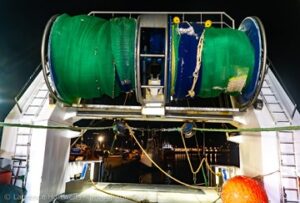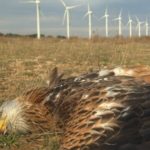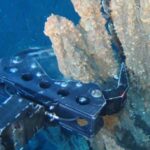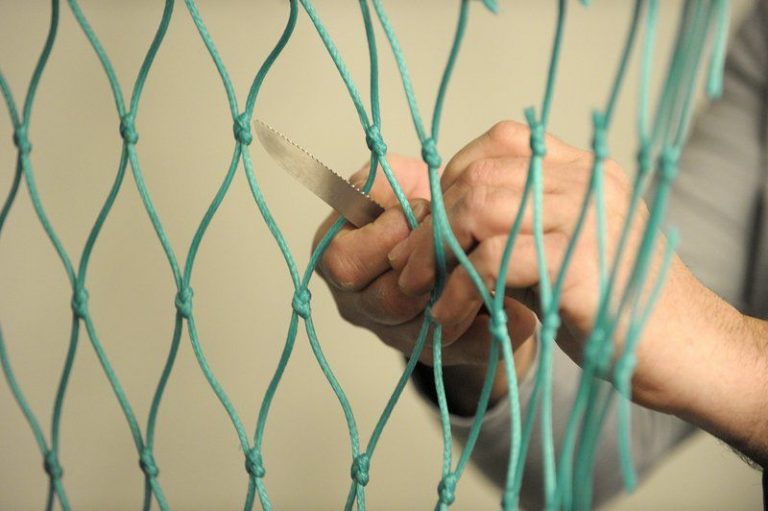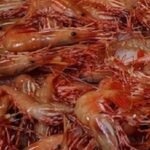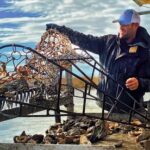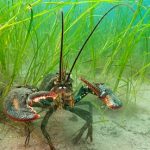Monthly Archives: April 2013
Controversial bill allowing dragging for lobsters supported by Maine regulators video
 Changing the law will help keep groundfishing boats in Maine, Mendelson said, which will encourage diversity in Maine’s fishing industry and help preserve Portland’s working waterfront. “The department believes that this bill is an appropriate step to take in helping to sustain the Maine groundfish industry for future generations,” Mendelson said. continued
Changing the law will help keep groundfishing boats in Maine, Mendelson said, which will encourage diversity in Maine’s fishing industry and help preserve Portland’s working waterfront. “The department believes that this bill is an appropriate step to take in helping to sustain the Maine groundfish industry for future generations,” Mendelson said. continued
Letters to the editor: Keep East Coast free of drilling – Hadley Wingate
Hadley fails to make a critical connection regarding U S Interior’s “Smart from the Start”, All of he Above” strategy. Knowing that view could possibly change by allowing oil companies to drill for oil off the East Coast breaks m![]() y heart. The Department of the Interior will make a ruling sometime this year on whether to allow oil companies to conduct seismic air gun testing off the East Coast. That testing is a process where air guns blast compressed air into the ocean…..Our best option to help preserve our oceans while meeting our energy needs is to switch over to clean renewable energy sources like offshore wind power that will protect our marine mammals and coastal communities. continued
y heart. The Department of the Interior will make a ruling sometime this year on whether to allow oil companies to conduct seismic air gun testing off the East Coast. That testing is a process where air guns blast compressed air into the ocean…..Our best option to help preserve our oceans while meeting our energy needs is to switch over to clean renewable energy sources like offshore wind power that will protect our marine mammals and coastal communities. continued
Press release from Rep. Paul Tine – opposes H 983 – 2013 Fisheries Economic Development Act
 Representative Tine announced today that he strongly opposes House Bill 983 entitled, 2013 Fisheries Economic Development Act. “This bill is a thinly-veiled effort by special interests to accomplish one thing, to eliminate commercial fishermen from catching Trout, Rockfish, and Drum,” said Representative Tine. “Commercial fishing is vital to our economy; we should be focused on finding ways to support our commercial fishing industry rather than adding new limitations and regulations.” continued
Representative Tine announced today that he strongly opposes House Bill 983 entitled, 2013 Fisheries Economic Development Act. “This bill is a thinly-veiled effort by special interests to accomplish one thing, to eliminate commercial fishermen from catching Trout, Rockfish, and Drum,” said Representative Tine. “Commercial fishing is vital to our economy; we should be focused on finding ways to support our commercial fishing industry rather than adding new limitations and regulations.” continued
Partnerships for Fisheries Innovation, Growth, and Change: An Update on Travels to New England, Collaboration with the Community Fisheries Network & Other Inspiring Fisheries Organizations
A team from AMCC along with other Alaskan fishing friends embarked on an amazing voyage to Maine and Boston in early March. I accompanied the “Kodiak contingent” which included Dave Kubiak, AMCC’s board chair, Theresa Peter son, AMCC’s Kodiak Outreach Coordinator, and Darius Kasprzak, President of the Alaska Jig Association. All three of the Kodiak group are active fishers, which gave our group lots of “fish cred” to carry with us as we headed east. Linda Behnken, President of the Alaskan Longline Fishermen’s Association and a member of AMCC’s Board of Advisors also went on trip. continued
son, AMCC’s Kodiak Outreach Coordinator, and Darius Kasprzak, President of the Alaska Jig Association. All three of the Kodiak group are active fishers, which gave our group lots of “fish cred” to carry with us as we headed east. Linda Behnken, President of the Alaskan Longline Fishermen’s Association and a member of AMCC’s Board of Advisors also went on trip. continued
MSC certifications list hits 200 mark with Canadian crab
Undercurrent News – After being in assessment for a little less than a year, the Marine Stewardship Council (MSC) certificationin the Eastern Canadian province of Newfoundland and Labrador (NL) has received Marine Stewardship Council (MSC) certification, becoming the 200th fishery with the MSC’s blue stamp of approval. continued
Scallop bill shucks regional development
JUNEAU — The Alaska Regional Development Organization celebrated the “silver jubilee” of its 25th anniversary in its annual report this year, and the Alaska Legislature marked the occasion by letting the program die after the bill to ex tend its sunset date for five years fell victim to an obscure fish war involving Korean hair crab and weathervane scallops. continued
tend its sunset date for five years fell victim to an obscure fish war involving Korean hair crab and weathervane scallops. continued
Study shows depleted fish stocks can come back from the brink What a difference in articles!
(Phys.org) It turns out, in fact, that the resilience – the ability to recover from overfishing – of a fish stock is enhanced, not hurt, even if it has been moderately overexploited for decades, offering the possibility of swift recovery if sensible catch limits are placed on it. Philipp Neubauer, a postdoctoral scholar, and Olaf Jensen, an assistant professor of marine and coastal sciences, say the key is in the adaptation of fish to over-fishing. A fish stock is over-fished if its numbers fall below half the level needed to sustain maximum harvest. continued
“Canada’s cod, and many other depleted fish, unlikely to recover” By Margaret Munro, Postmedia News
“Study offers bleak outlook for fish recovery” Aly Thomson, The Canadian Press
Newfoundland Crab Issues. The Fisheries Broadcast with John Furlong
 The crab dispute moves to the Union Headquarters – Harvesters say outside buyers might be the key to higher prices. Derrick Dalley accuses the FFAW of lying – The manager of the crab plant in Hickman’s Harbour takes us through the events of that protest there Monday. Those story’s and more here
The crab dispute moves to the Union Headquarters – Harvesters say outside buyers might be the key to higher prices. Derrick Dalley accuses the FFAW of lying – The manager of the crab plant in Hickman’s Harbour takes us through the events of that protest there Monday. Those story’s and more here
Some imported farmed seafood is a toxic cocktail – sometimes laced with antibiotics and pesticides that are not allowed in Canadian food production.
Vancouver Free Press. – Have a look at the frozen shrimp in your local grocery store and you’ll see that most of it is imported from developing countries in Southeast Asia and, increasingly, Latin America. Millions of small producers in the world’s poorest countries produce 99 percent of the world’s farmed shrimp, according to the Fisheries and Aquaculture Department, a division of the Food and Agriculture Organization (FAO) of the United Nations, with exports to the rest of the world amounting to almost $9 billion a year. “Intensive shrimp farming is an environmental disaster,” says UBC Fisheries Centre director Daniel Pauly. “In addition, aquaculture from Southeast Asia—from Thailand and Vietnam and other countries—is exposed to all kinds of chemicals for the simple reason that shrimp are farmed in systems that are heavily contaminated. continued (I NEVER agree with this guy, but I do on this.)
Two variations so far – “Canada’s cod, and many other depleted fish, unlikely to recover” and “Study offers bleak outlook for fish recovery”
By Margaret Munro, Postmedia News – Canada’s once bountiful cod stocks are not likely to bounce back, according to an international study on the dangers of overfishing. “Here we are more than 20 years after the cod was effectively depleted, and according to our analysis, the recovery of the cod stocks is highly improbable,” says fisheries scientist Jeffrey Hutchings at Dalhousie University, co-author of the study published in the journal Science on Thursday….at the end of the article: “Ecosystems change,” says Hutchings, noting how seals, herring and mackerel now fill some of the gaps left by Canada’s cod collapse. (which part does he not understand?) contined
Aly Thomson, The Canadian Press HALIFAX – The recovery of overexploited fish populations such as cod has been slower than expected and many depleted stocks may never be able to bounce back, a new study says. continued
It would be great if our Canadian friends would leave comments about this. BH
1 comment
Gloucester fishing community seeks relief from catch limits – Gloucester’s historic industry. Uncertain future
 A few weeks ago, second-generation commercial fisherman B.G. Brown almost gave up. He had learned how much fish he can legally catch in the coming year. The numbers were shockingly low. “I was ready to throw in the towel,” Brown told a crowd of about 40 local business people, political leaders, concerned community members, and fellow fishermen that gathered last week to discuss the uncertain future of Gloucester’s historic industry. continued
A few weeks ago, second-generation commercial fisherman B.G. Brown almost gave up. He had learned how much fish he can legally catch in the coming year. The numbers were shockingly low. “I was ready to throw in the towel,” Brown told a crowd of about 40 local business people, political leaders, concerned community members, and fellow fishermen that gathered last week to discuss the uncertain future of Gloucester’s historic industry. continued
Gulf Coast Governors Call on Congress to Give Management Control to States for Red Snapper Fishery
fosterfollynews.com – The letter to U.S. House and Senate leadership, signed by the governors’ states, “With a stock that is recovering steadily, our recreational anglers are being allowed to fish less and less, and there is no hint of willingness from NOAA Fisheries to deviate from this present, unsatisfactory course. As governors of Gulf states, we believe this confusing management is just the latest evidence of a federal management system that is irretrievably broken. We seek to establish a better fishery management approach for Gulf red snapper.” continued
NPFMC fails to clarify observer program
Homer News – The Alaska Longline Fishermen’s Association’s attempt to get the North Pacific Fishery Management Council to clarify the objectives of the restructured observer program and provide a meaningful timeline for implementing the electronic monitoring program were largely unsuccessful at last week’s meeting. continued
Asian carp could threaten La. fishery
 A Louisiana chef is teaming up with wildlife officials to target a big fish that could cause even bigger problems in the state’s productive fishing grounds. These fish eat voraciously and reproduce rapidly. One fish reproduces three to four times a year, releasing between 100,000 to 3 million eggs each spawning, Parola said. They have no major predators and can eat more than 20 percent of their body weight in algae and plankton a day. Asian carp can weigh up to 100 pounds. With their large size and hunger for plankton, they could pose a threat to native species. continued
A Louisiana chef is teaming up with wildlife officials to target a big fish that could cause even bigger problems in the state’s productive fishing grounds. These fish eat voraciously and reproduce rapidly. One fish reproduces three to four times a year, releasing between 100,000 to 3 million eggs each spawning, Parola said. They have no major predators and can eat more than 20 percent of their body weight in algae and plankton a day. Asian carp can weigh up to 100 pounds. With their large size and hunger for plankton, they could pose a threat to native species. continued
REMINDER! TODAY! Watermen’s symposium set at Chesapeake College.1 p.m. Thursday, April 18, free and open to the public.
The symposium will start with opening remarks from Franchot, Dean, Chesapeake College Vice President for Academic Affairs Dr. Kathryn Barbour and Martin L. Gary of the Tidal Fisheries Advisory Commission. Link
Canada and Norway moves in seal case against EU
Norway and Canada have requested the WTO to appoint the members of the dispute settlement panel established to consider EU’s ban on seal products. “For the Norwegian authorities, this issue involves important principles, such as our right to sustainably harvest our living marine resources and to sell products derived from hunting and fishing,” said Minister of Fisheries and Coastal Affairs Lisbeth Berg-Hansen. continued
Crab plant gets court order against fishermen
 The company that runs a Random Island fish plant at the focus of a mass dumping of crab this week has obtained a court order against members of the fisheries union. About 200 fishermen protested at Golden Shell Fisheries in Hickman’s Harbour on Monday. continued
The company that runs a Random Island fish plant at the focus of a mass dumping of crab this week has obtained a court order against members of the fisheries union. About 200 fishermen protested at Golden Shell Fisheries in Hickman’s Harbour on Monday. continued
26 members of Congress urge House Appropriations Committee to reject funding Atlantic and Gulf of Mexico catch shares until rewrite of the MSA
![]() A total of 26 members of Congress, including Rep. John Tierney, have urged the House Appropriations Committee to reject funding for new catch share fishery management programs in the Atlantic and Gulf of Mexico until the House Natural Resources Committee completes its rewrite of the Magnuson-Stevens Act….The Northeast groundfish catch share program, whose coverage includes Gloucester and New England, was created without an industry referendum and has mixed with new rigid requirements for the rebuilding of overfished stocks to leave the fishery in a statutory disaster. continued
A total of 26 members of Congress, including Rep. John Tierney, have urged the House Appropriations Committee to reject funding for new catch share fishery management programs in the Atlantic and Gulf of Mexico until the House Natural Resources Committee completes its rewrite of the Magnuson-Stevens Act….The Northeast groundfish catch share program, whose coverage includes Gloucester and New England, was created without an industry referendum and has mixed with new rigid requirements for the rebuilding of overfished stocks to leave the fishery in a statutory disaster. continued

Opinion: Maine can bring back its groundfishing boats By Bert Jongerden,general manager of the Portland Fish Exchange,
 For many members of the Maine fishing community, the issue has been boiled down to “us” versus “them,” lobstermen versus groundfishing. But the divide is artificial. The lobsters are being caught today. They are even being sold in Maine, only indirectly with a stop first in Massachusetts. It won’t undermine the trap fishery to allow groundfishing boats to land in Portland under close supervision. continued
For many members of the Maine fishing community, the issue has been boiled down to “us” versus “them,” lobstermen versus groundfishing. But the divide is artificial. The lobsters are being caught today. They are even being sold in Maine, only indirectly with a stop first in Massachusetts. It won’t undermine the trap fishery to allow groundfishing boats to land in Portland under close supervision. continued
Ouster of Board of Fisheries member deepens chill between sport, commercial foes – a commercial fishermen is in the minority on the board
 Never mind that the Board of Fisheries vote was 7-0 to adopt a new escapement goal range put forth by the Alaska Department of Fish and Game for Kenai kings based on new sonar counters, or that the same full board unanimously refused to adopt any new management measures at its statewide meeting in late March….In the days leading up to the vote on Parnell’s nominations, KRSA put out action alerts urging its supporters to call legislators to oppose Webster, blaming him for the failure of the Upper Cook Inlet Task Force to reach consensus on new management measures and for the adoption of an escapement goal KRSA did not support. continued
Never mind that the Board of Fisheries vote was 7-0 to adopt a new escapement goal range put forth by the Alaska Department of Fish and Game for Kenai kings based on new sonar counters, or that the same full board unanimously refused to adopt any new management measures at its statewide meeting in late March….In the days leading up to the vote on Parnell’s nominations, KRSA put out action alerts urging its supporters to call legislators to oppose Webster, blaming him for the failure of the Upper Cook Inlet Task Force to reach consensus on new management measures and for the adoption of an escapement goal KRSA did not support. continued
States to try to trap sea lions at The Dalles Marina on the Columbia River
 THE DALLES — Washington and Oregon officials have placed a trap at The Dalles Marina on the Columbia River to try to capture California sea lions that have made their way upstream of Bonneville Dam. continued
THE DALLES — Washington and Oregon officials have placed a trap at The Dalles Marina on the Columbia River to try to capture California sea lions that have made their way upstream of Bonneville Dam. continued
Senator Murkowski Grills acting Commerce Secretary Rebecca Blank on Observer Policy
 Alaska Senator Lisa Murkowski questioned acting Commerce Secretary Rebecca Blank on several ocean policy issues facing Alaskan coastal communities during a Commerce, Justice, and Science Appropriations Subcommittee hearing last week. Topics ranged from the federal fisheries observer program to Japanese tsunami debris clean up, among other things. continued – audio
Alaska Senator Lisa Murkowski questioned acting Commerce Secretary Rebecca Blank on several ocean policy issues facing Alaskan coastal communities during a Commerce, Justice, and Science Appropriations Subcommittee hearing last week. Topics ranged from the federal fisheries observer program to Japanese tsunami debris clean up, among other things. continued – audio
PEI lobster fishermen keep fingers crossed for good prices
THE SOU’WESTER – As they headed out on the water to set their traps in preparation for the first haul of the season, PEI lobster fishermen were optimistic this would be the year when prices began to turn around. Like most of their counterparts on the eastern seaboard, fishermen in the Cradle of Confederation have been dealing with low prices for the past several seasons. With prices for fuel and bait continuing to rise, the president of the PEI Fishermen’s Association said fishermen need higher prices to stay in the water. continued
It’s always over fishing, though! Flame retardants in consumer products are linked to health and cognitive problems
They can also escape during production or when treated products are recycled or disposed of in landfills or incinerators. Once released, they can build up in sewage sludge, soil and sediments. Scientists have detected flame retardants hundreds of miles from human sources, including in the tissue of sperm whales, which spend most of their time in deep ocean waters, and of Arctic marine mammals, suggesting long-distance transport by water and air currents. continued
In ocean showdown, state appeals court upholds California’s landmark marine reserves network
![]() In a significant victory for environmentalists and biologists who support the “no-fishing zones” designed to restore declining ocean species, the Fourth District Court of Appeal late Monday turned back a challenge by the Coastside Fishing Club, based in Martinez. The group had sued, arguing that the rules went too far and violated state law. continued
In a significant victory for environmentalists and biologists who support the “no-fishing zones” designed to restore declining ocean species, the Fourth District Court of Appeal late Monday turned back a challenge by the Coastside Fishing Club, based in Martinez. The group had sued, arguing that the rules went too far and violated state law. continued
Accord Would Regulate Fishing in Arctic Waters
 Talks are scheduled for later this month among diplomats and fisheries officials from Norway, Denmark, Canada, the United States and Russia. Most concern is focused on newly ice-free waters above the Bering Strait, above the exclusive economic zones of Russia and the United States, and now accessible to trawler fleets from hungry Pacific Ocean nations like China and Japan. continued
Talks are scheduled for later this month among diplomats and fisheries officials from Norway, Denmark, Canada, the United States and Russia. Most concern is focused on newly ice-free waters above the Bering Strait, above the exclusive economic zones of Russia and the United States, and now accessible to trawler fleets from hungry Pacific Ocean nations like China and Japan. continued
PEI Fishermen’s Association Tuna committee suggests mid-July opening
The Sou’Wester – News The PEIFA Tuna Advisory com![]() mittee will be recommending the tuna fishery in Island waters open July 15. continued
mittee will be recommending the tuna fishery in Island waters open July 15. continued
Pete Tortorich Eats, Breathes and Lives Louisiana Seafood
by Kim Hilsenbeck/Louisiana Seafood News With a 40-year career in the food industry, Pete Tortorich brings a lifetime of experience in marketing seafood to bear as a member of the Louisiana Seafood Board. Born and bred in N ew Orleans, he also brings a deep-rooted sense of a place at the table. He eats, breathes and lives Louisiana seafood. continued
ew Orleans, he also brings a deep-rooted sense of a place at the table. He eats, breathes and lives Louisiana seafood. continued
Dauphin River fishery blames Manitoba for flood damage
 CBC News – Commercial fishermen in Manitoba’s Dauphin River area are blaming the provincial government for wiping out a $5-million-a-year fishery near Lake Winnipeg. The Dauphin River Commercial Fishers Association says a dike the government built in the area during the 2011 flood trapped in overland flood waters. continued
CBC News – Commercial fishermen in Manitoba’s Dauphin River area are blaming the provincial government for wiping out a $5-million-a-year fishery near Lake Winnipeg. The Dauphin River Commercial Fishers Association says a dike the government built in the area during the 2011 flood trapped in overland flood waters. continued

































